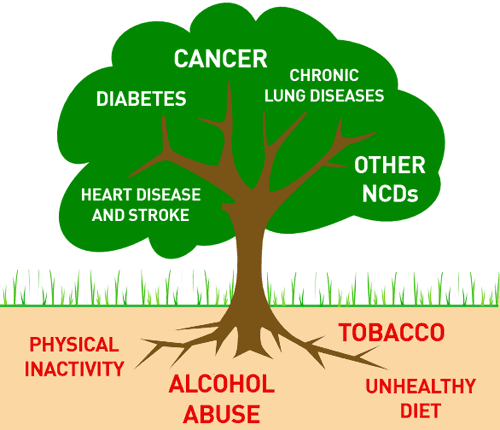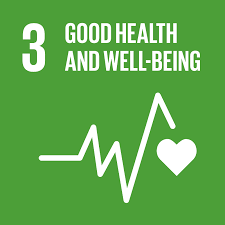Let's Fight Against Non-communicable diseases (NCDs)

The main focus of the project is on Sustainable Development Goal 3 that is enhancing and promoting good health and well-being of people suffering from non-communicable diseases (NCDs) like Diabetes, Hypertension, and Stroke in Mutoko District, Zimbabwe.
The aim is to educate and raise awareness; improve equitable access, diagnosis, treatment and management of NCDs. Tangible by-products of the project are a GIS-Web based System, a research article and a presentation of results. Performance indicators will be measured by the number of cases mapped across the 3 targeted remote Wards in the District.
The Challenge
The National Health Strategy for Zimbabwe (2016) stressed that, NCDs now have a high percentage of mortality, and Zimbabwe is also facing a double burden in both infectious and non-infectious diseases. WHO (2014) reported a 31% of deaths which were related to NCDs in Zimbabwe, of which 9% cardiovascular diseases; 33% in 2016 (WHO, 2018) and 39% in 2019. Lancet (2014) stressed a 19% probability of succumbing to NCDs among the age group of 30-70years and 46% of adults are affected by hypertension in Zimbabwe – which is a very significant risk factor for Type 2 Diabetes. The number of people with diabetes is increasing and is now estimated to affect 285–350 million people worldwide (Danaei et al. 2011). Hypertension remains also the most important modifiable risk factor for Stroke in Africa, among other modifiable risk factors like diabetes, obesity, stress, smoking, alcohol use, physical inactivity and unhealthy diets. Stroke is a leading cause of disability, dementia and death worldwide, and approximately 70% of deaths from stroke and 87% of stroke- related disability occur in developing countries. According to the National Health Strategy for Zimbabwe (2016), and the 2021-2025 National Health Strategy; the last baseline study on NCDs was done in 2005 with a total geographical coverage of at-most one third across Zimbabwe. Although Zimbabwe has put in place some strategies to curb the burden of diseases, there is a very limited robust system in place to tackle and reduce the burden of NCDs. The available prevalence statistics do not sufficiently represent remote and marginalised areas in Zimbabwe especially where there is lack of accessibility to healthcare services. It is very difficult to put in place health systems on non-communicable diseases where there is inadequate information from limited geographical areas.

This Project hence therefore seeks to prioritise on the addition of Health information regarding Diabetes, Hypertension and related chronic diseases in Mutoko District. The project will also generate a GIS Web-based NCD Health System which can be used by interested health partners as to monitor and provide reliable surveillance of NCDs in Zimbabwe. The results will be also used by Life Giving Foundation among other interested parties to easily make informed decision on the effective methods of intervention, so as to enhance the health and wellbeing of NCD victims in Zimbabwe.